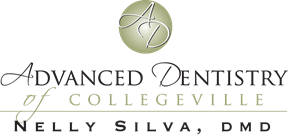Tooth sensitivity can occur after dental work but long lasting or recurring tooth sensitivity is caused by eroding enamel that exposes the nerves in teeth. Visiting your dentist is the best way to diagnose the reason for sensitive teeth but there are many ways to alleviate the pain and prevent it from getting worse. Preventive methods include toothpaste designed for sensitive teeth, avoiding acidic foods, and more.
Be sure to brush gently with a soft-bristled toothbrush to avoid wearing down the enamel that protects the dentine, dentine links to nerves inside the tooth which, when aggravated, results in pain. Use toothpaste made for sensitive teeth. After continuous use the toothpaste can help teeth desensitize and block the pain. Don’t brush your teeth too soon after eating to avoid wearing away the softened enamel.
Ice cream, acidic or sweet foods remove enamel over time. It is important to avoid consuming too much of those kinds of food to prevent rapid erosion of enamel. Drink through a straw to limit contact with acidic and sugary drinks. Drinking ice cold or burning hot drinks can stimulate the exposed nerves causing pain.
Toothpaste for sensitive teeth does not work for everyone; a mouthwash with a high fluoride content used twice a day may reduce sensitivity. Swish it around for at least thirty seconds, twice a day, and avoid rinsing after. Using the mouthwash before bed is a good way to prevent eating and drinking from rinsing it off your teeth.
Grinding your teeth in your sleep is another possible cause of sensitive teeth and can damage them over time. See your dentist about getting a mouth guard to wear while sleeping to prevent grinding the enamel away from the affected area.
It is important to recognize the signs of tooth sensitivity and not hesitate to visit your dentist if preventive measures do not help or if the pain increases. Your dentist can help you make changes in your oral health to help prevent tooth sensitivity from recurring.
Call the team at Advanced Dentistry of Collegeville today at 610-489-5555 if you’re experiencing tooth sensitivity.







